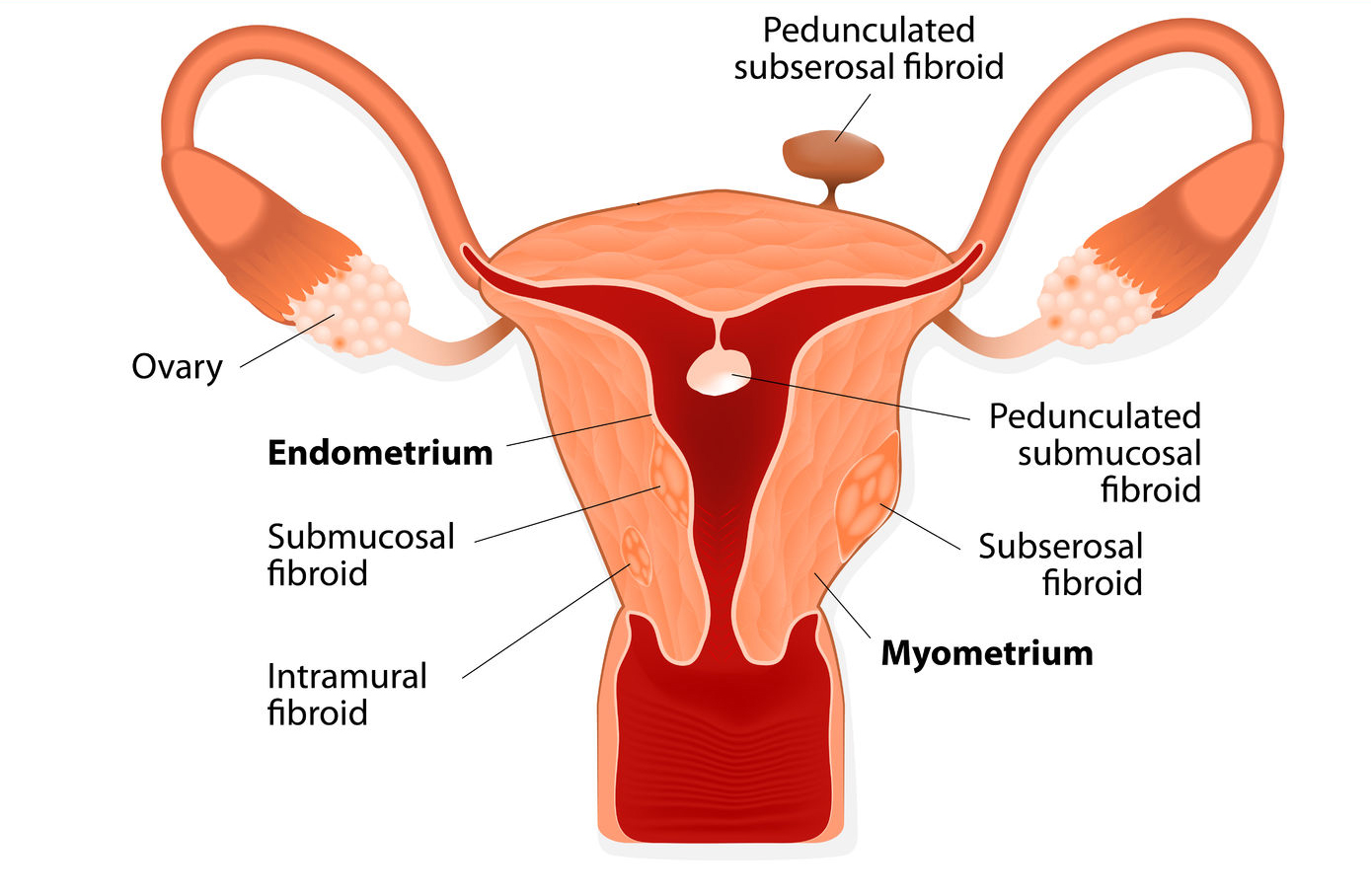A myoma (also known as fibroids) is a cellular proliferation on the uterus, formed by connective tissues and smooth muscle cells. A benign tumor, which is associated with hormonal changes, related to the estrogen level in the body.
Higher estrogen level potentiates the growth of the fibroids, and in case of decrease of the hormone level, the size of the nodes would decrease too.
The size of the fibroid could be about a few millimeters to a size of a human fist. However, the size of myoma is not always commensurate with the symptoms caused.



